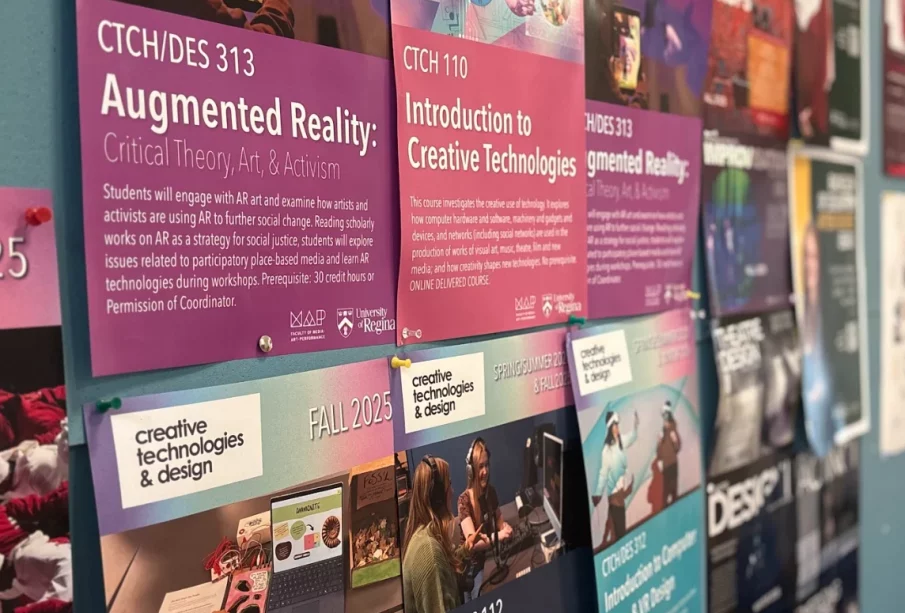We asked four students about their favourite and least favourite classes to advise the newcomers
A new school year
With summer coming to an end and school staring back up again, students are preparing for a busy year ahead.
A new school year can bring a lot of excitement, whether it’s taking fun elective courses, trying out new food spots, or making new connections with people. However, it can also be a stressful time with piles of assignments and readings.
More experienced students can often rely on each other to recommend or warn them about certain classes, but new students may not have an expert in their circle to guide them yet. In an effort to help these students, the Carillon talked to four seasoned students about some of their most memorable classes, for better or worse.
Some of the U of R’s best and worst classes
Education student Carlene Gillis, who is in her last semester of her fourth year, told us about how her favourite class was pottery. “It felt like a class that had no pressure to be amazing or good. It was a way to get away from all the other stressful classes.”
While she enjoyed pottery, Gillis said she did not like her social justice studies class. “The class and assignments are way too much [for a first year class]. You feel like you need to learn and figure it out on your own,” she said.
For Akash Ramanuj-Ganong, a former engineering and business student, his favourite class was Engineering 123. “It was easy and applied nicely across different aspects of my whole life,” he shared.
“My least favourite [class] was calculus because it was hard and felt like a massive leap from what I learnt in high school,” said Ramanuj-Ganong, when asked about classes he struggled in.
Emily, who is heading into her third year as a psychology major, said the best class she took was performance psychology. “[This has been] my favourite class so far because it was really interesting to see a path for psychologists that is not as well known,” said Emily.
She said she liked the idea of helping athletes with their training and other aspects of working with these high performing individuals. Other aspects include workouts, eating and so on.
Emily added how she liked the idea of working closely with high performing athletes. “Learning how to help them improve performance through psych practices was something I found to be a new and cool thing for me to learn about.”
For a lot of students, like Ramanuj-Ganong and Emily, they learn best in a hands-on or visual learning environment. That is something to consider when choosing your classes.
The class and assignments are way too much (for a first year class). You feel like you need to learn and figure it out on your own. – Carlene Gillis, Education student, fourth year
Mandatory classes vs. electives
Many students know that there is always a required class or two that seems to have nothing to do with what you are actually studying. These classes can feel like a curveball. Sometimes it turns out to be a surprise favourite, while other times it can feel totally irrelevant and frustrating.
For some students, these classes may even contradict everything they have been taught up to that point.
This was the case for Alex Kozroski, a student at the Journalism School in his last semester. “My least favourite [class] would have to be PR 100. Despite it being incredibly easy, the work was boring and went against most of the principles of good journalism,” Kozroski reflected.
Kozroski noted how even with the class’ connections to careers in communications, he doesn’t think it should be a requirement for journalism students. He said this is because communications and journalism should be two separate degrees.
Although Korzroski acknowledged that PR 100 was a class he didn’t enjoy, he made up for it by taking elective courses that interested him.
“History 390AX (History of Soviet Union and post Soviet states) was my favourite because of how deep the material was, and how engaging the professor was.” Korzroski said
He added that though the class was challenging, the passion for teaching that his professor showed made it a much more enjoyable class.
Others should learn from Korzroski and try to take classes that they can have fun with, like yoga, pottery, cooking, and so on. Although we are required to take many mandatory classes for our degrees, it doesn’t mean we can’t also take classes that explore our interests.
Students are your guide
Although some classes can be difficult and frustrating at times, students can make up for it by selecting electives that make their university experiences more fun and enjoyable.
Newer students should look to more experienced students for guidance on what classes they should take, and may just end up making some friends too.





